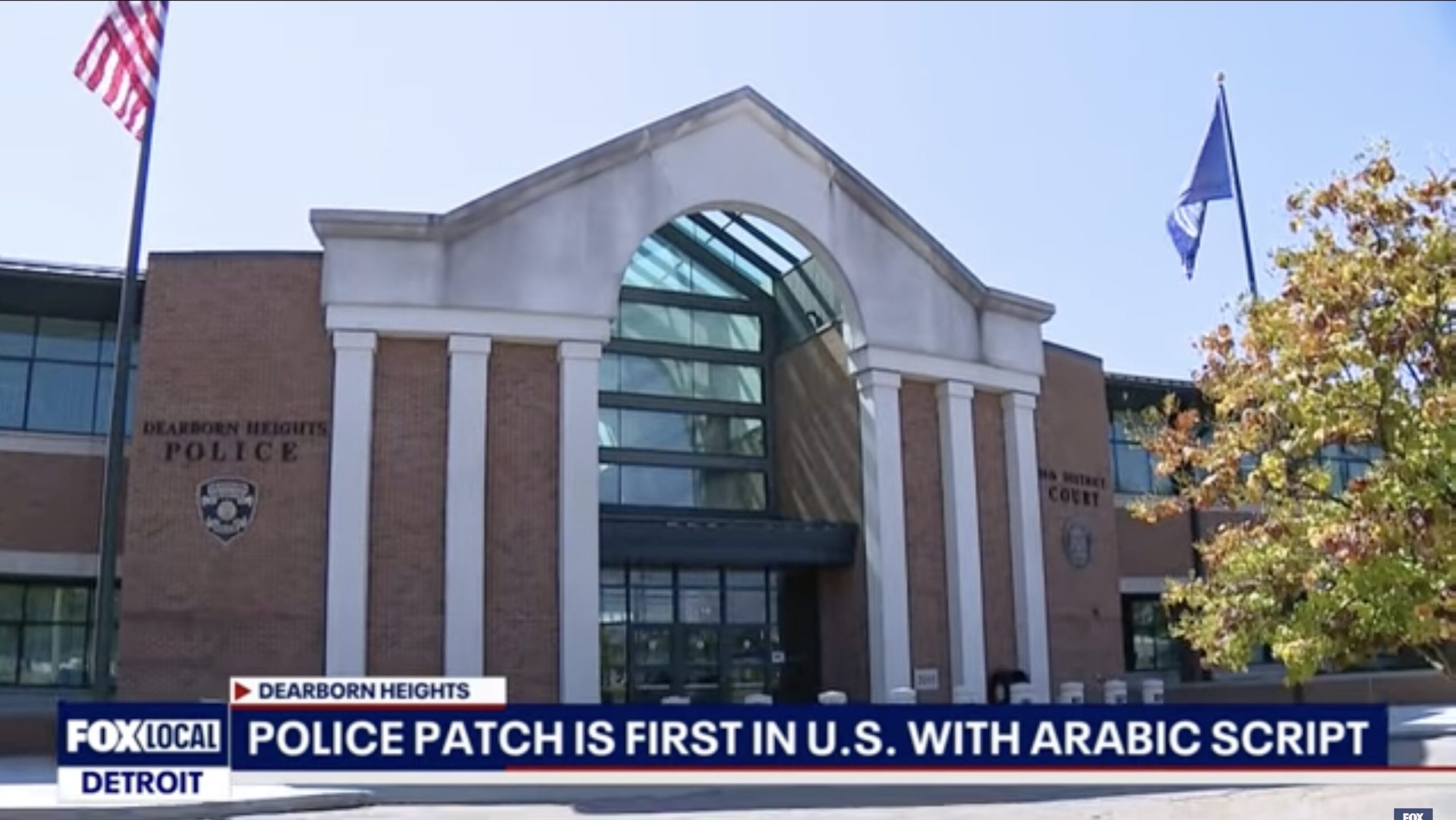Dearborn Heights, Michigan, Mayor Bill Bazzi clarified on Friday that a new Arabic police patch proposed by the Dearborn Heights Police Department (DHPD) was not officially adopted. However, he did not dismiss the possibility of considering such a badge in the future.
Explainer As A Former DC Cop, The Federal Takeover Was The Right Move
Earlier this week, the DHPD shared a Facebook post announcing the optional patch, which featured Arabic script alongside English. The post aimed to reflect the diversity of the community, particularly the significant number of residents of Arabic descent in Dearborn Heights. The patch was described as a representation of "unity, respect, and our shared commitment to service."
In a statement on the DHPD's Facebook page, Bazzi explained that the patch initiative was an internal discussion among some department members and had not undergone a formal review process. "Should efforts like this be formally undertaken to make any changes to the Police uniform, it is our goal to include multiple PD stakeholders for a larger conversation, to ensure all are included in the discussion," Bazzi stated.
The proposal has sparked debate within the community. Supporters argue that the patch symbolizes inclusivity and respect for the city's diverse population, which was reported to be 39% Middle Eastern or North African as of 2023. Critics, however, contend that such initiatives may undermine the process of assimilation, suggesting that they cater to communities that do not fully integrate into American society.
Critics have pointed to historical perspectives on immigration and assimilation. George Washington noted in a 1794 letter that immigrants who settle in large groups often retain their original language and customs, which can hinder their integration into the broader society. Similarly, Benjamin Franklin expressed concerns about the German immigrant population in Pennsylvania, fearing that the state would become a "German Colony" where English speakers would need to learn German instead.
The neighboring city of Dearborn became the first Arab-majority city in the United States in 2023, highlighting the demographic shifts in the region. This has led to discussions about the implications of such changes on local culture and governance.
Bazzi's remarks reflect a cautious approach to the patch initiative, emphasizing the need for broader community engagement before making any official decisions. "It is important to ensure that all voices are heard in discussions about our community's representation," he said.
The controversy surrounding the Arabic patch raises questions about the balance between honoring cultural diversity and promoting a unified national identity. As the debate continues, community members are encouraged to share their views on how best to represent the city's diverse population while fostering a sense of belonging for all residents.
As of now, the DHPD has not made any official changes to its uniform policy, and the future of the Arabic patch remains uncertain. The discussion reflects ongoing tensions in many American cities regarding immigration, cultural identity, and the role of local government in addressing these issues.
Why it matters
- Mayor Bazzi clarified that the Arabic police patch is not officially adopted, highlighting the need for community engagement in such initiatives.
- The proposal reflects the city's significant Arabic-speaking population, raising questions about cultural representation and assimilation.
- The patch initiative has sparked community debate, with supporters advocating for inclusivity and critics warning against potential cultural division.
What’s next
- Community members are encouraged to share their views on the patch initiative and representation in local governance.
- Future discussions on the patch will involve multiple stakeholders to ensure diverse perspectives are considered.

